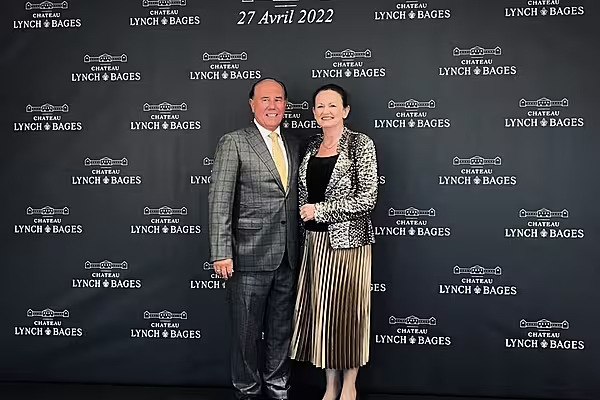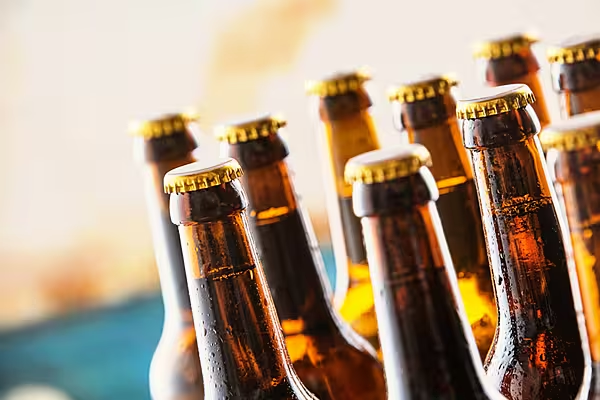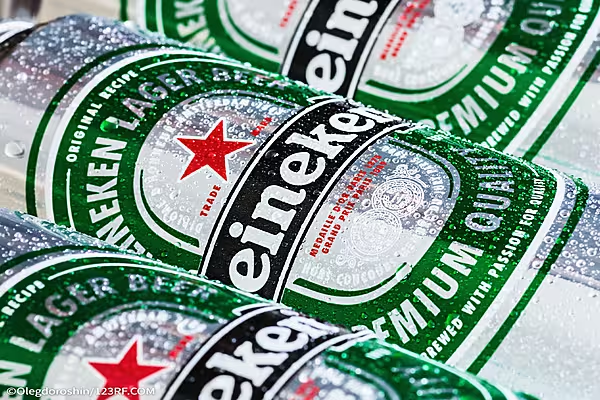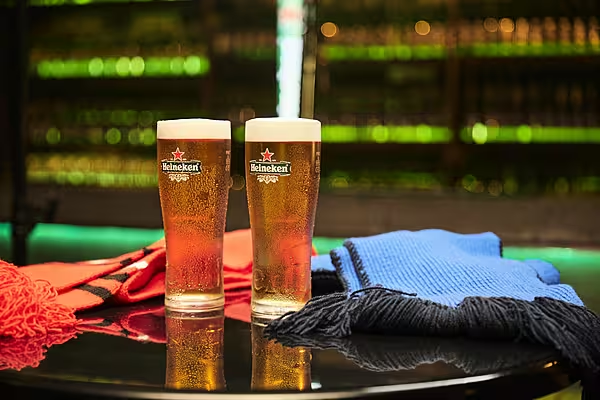Maev Martin talks to one of the best-known names in the Irish drinks industry, Barry & Fitzwilliam managing director, Michael Barry.
Michael Barry has led Barry & Fitzwilliam for the last four decades, growing the business to become Ireland’s largest independent premium alcoholic drinks distributor.
The company carries over 100 agency brands and employs approximately 60 people at its extensive warehousing and administration facilities, which are based in Cork and Dublin.
This year, the iconic Irish drinks company celebrated 40 years of trading, and it marked this major milestone with a celebratory event for staff in Isaacs Restaurant in Cork. “Our customers will be receiving something special very soon,” says Michael.
Barry & Fitzwilliam has been at the forefront of the latest trends driving the market over the past four decades, including the gin revolution, the continued rise of craft beer and cider, the Irish whiskey renaissance, and the growth of no and low alcohol products.
How does he keep abreast of, and anticipate, these trends?
“I was once told that my job was not managing director of the company, but to be the visionary and strategy director, so I suppose I take that seriously,” he says.
“Change is the only constant and we are always looking for new trends. Our track record speaks for itself in that regard.”
Cocktail Culture
There can be no doubt that the Irish drinks industry is seeing a new type of consumer emerge post-pandemic – one that is consuming less, is even more focused on premium products, and is eager to purchase ‘better for you’ food and drink.
Last year, sales of cocktails and long drinks in Ireland grew by 60%, while hard seltzers were up by 46% and flavoured alcoholic beverages rose by 27%.
The majority of sales were imported RTD products, but a number of local producers have entered the market, with sales of Irish RTD brands up by 7.4% between 2020 and 2021.
Another strong trend in Ireland is the growing popularity of no- and low-alcohol products.
While beer and cider brands lead this trend, the no- and low-spirits category has started to emerge, with sales up by 313% last year, albeit from a low base.
According to Michael, Barry & Fitzwilliam’s sales of cocktail ingredients such as Tia Maria, Cointreau, Passoa and Bols liqueurs are examples of the continued move towards premiumisation.
“We saw a huge increase in cocktail culture in retail during Covid-19, which has continued, and we now see that transitioning into the hospitality sector,” he says.
“We are also witnessing a big increase in demand for non-alcoholic wines such as McGuigan Zero, as well as Brewdog Punk AF, and Strykk non-alcoholic spirits.”
We heard a lot of hype in recent years about how tequila was going to be the next big thing in the global drinks industry, following the explosion of gin’s popularity worldwide. It hasn’t materialised yet, but could it be the in vogue category for 2023 and beyond?
“I believe that cocktail culture has a long way to go yet,” he says.
“Tequila is definitely happening at the moment, but primarily as a cocktail ingredient. There has been a lot of talk about premium rum, and we can see the beginnings of this with Mount Gay Black Barrell sales.”
When it comes to the brands in their portfolio that best represent the latest trends, Michael says that it has to be the success of celebrity brands, such as the wine ranges from Graham Norton, Kylie Minogue and Sarah Jessica Parker.
“In addition, Brewdog Beers are performing extremely well at the moment, and I expect that to continue,” he says.
“I also expect that 2023 will be the year when the White Claw hard seltzer brand really takes off in Ireland.”
Inflation & MUP
Like every other retail business, Barry & Fitzwilliam has to contend with the ongoing inflation crisis and is working hard to mitigate any negative impact that it could have on its relationships with its brands and with retailers.
According to Michael, the biggest issue for Barry & Fitzwilliam has been the cost increase associated with dry goods such as bottles, cartons and labels, together with the increased costs of shipping and distribution.
Minimum unit pricing was implemented on 4 January 2022.
Based on NielsenIQ data for the 12 weeks ending 11 September 2022, price inflation is up by 9% for defined grocery food, and by 10% for beer, wines and spirits.
Many consumers are cutting back in order to manage costs, and alcohol is a discretionary category for most.
In NielsenIQ’s latest local consumer survey, 66% of consumers responded that they were cutting back on alcohol purchases as a direct result of MUP, which is reflected in the 10% volume decline that NielsenIQ saw in the 12 weeks to 11 September.
However, the decline in sales is not entirely due to MUP.
Volume sales for beer, wines and spirits in the UK, where MUP has not been implemented, are also experiencing a decline of 6% in volume (litres) in the latest 12 weeks to 10 September 2022.
Michael Barry isn’t reporting any negative impact on the sale of brands that he distributes as a result of MUP.
“In fact, MUP has been a positive for us, as wines were being sold under cost prior to its introduction and those wines now retail for approximately €8.00 per bottle, so that has benefitted branded wines as they saw no increase as a consequence of MUP,” says Michael.
“I feel as well that it has helped our craft and world beer range as it has narrowed the gap between them and the mainstream beers.”
Looking back to when Barry & Fitzwilliam was first established 40 years ago, Michael says that the Irish alcoholic drinks industry was primarily a spirit market with wines like Blue Nun, Black Tower, Le Piat d’Or and Blossom Hill being the main brands, along with Harveys Bristol Cream Sherry and Sandeman Port. A lot has changed since then and Michael cites a number of highlights for Barry & Fitzwilliam over the past four decades.
“The takeover of Maxxium Ireland in 2003 was the big highlight and our success in building the Corona brand has to be number two, together with developing McGuigan into the number one Australian wine brand and developing Villa Maria into the number one New Zealand wine brand,” he says.
"Barry & Fitzwilliam has always managed an extensive portfolio of brands and, of course, maintaining good relationships with individual brands has been a crucial part of its maintenance and expansion strategy. “In my opinion, business is about people,” he says, ‘whether it is our relationship with our customers or our relationship with our brand owners - and it pays to be a good listener!
© 2022 Checkout – your source for the latest Irish retail news. Article by Maev Martin. For more drinks news, click here. Click subscribe to sign up for the Checkout print edition.









